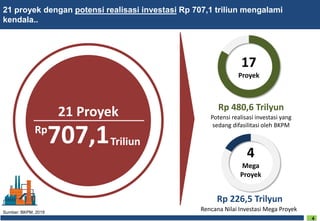Dragon's Den Investment Strategies: What Works And What Doesn't

Table of Contents
Successful Dragon's Den Investment Strategies
Mastering the art of securing investment requires a strategic approach. Successful entrepreneurs on Dragon's Den consistently demonstrate key elements that resonate with investors.
Strong Value Proposition & Market Validation
A compelling value proposition and proven market demand are fundamental. Dragons need to see a clear problem being solved and evidence that customers are eager to pay for the solution. This isn't about a good idea; it's about a demonstrably successful one.
- Show, don't tell: Instead of simply stating market potential, present concrete data. Showcase sales figures, pre-orders, or results from pilot programs. For example, a company demonstrating strong initial sales figures for their product within a defined niche clearly shows market validation.
- Highlight customer testimonials and positive feedback: Social proof is invaluable. Positive reviews, testimonials, and even early adopter enthusiasm build confidence and demonstrate market acceptance.
- Demonstrate a clear understanding of the competitive landscape: Dragons invest in businesses that can stand out. Showcasing a thorough understanding of your competitors, your unique selling proposition (USP), and your strategic advantage is crucial.
Scalable Business Model & Growth Potential
Dragons aren't just looking for a profitable business; they're looking for a scalable one. They want to see a clear path to significant growth and expansion. This means a business model that can easily increase production, reach wider markets, and ultimately deliver high returns.
- Illustrate examples of scalable production processes: Demonstrate how your business can efficiently increase output without proportionally increasing costs. This might involve automation, strategic partnerships, or efficient supply chains.
- Show projections for revenue growth and market share: Dragons want to see realistic yet ambitious financial projections. A well-defined financial model is key to showcasing growth potential.
- Explain the potential for franchising, licensing, or international expansion: Demonstrating a clear plan for scaling beyond your initial market significantly increases the appeal of the investment.
Experienced and Passionate Team
The team behind the business is just as important as the business itself. Dragons invest in people as much as in ideas. They look for a strong, experienced team with a genuine passion for their product or service.
- Showcase team members' expertise and track records: Highlight relevant experience and past successes. A team with a proven track record inspires confidence.
- Emphasize the team's synergy and shared vision: Dragons want to see a cohesive team working towards a common goal. Demonstrate the team's ability to collaborate and overcome challenges.
- Demonstrate the team's resilience and ability to overcome challenges: Entrepreneurship is tough. Showcasing the team's ability to adapt and overcome obstacles demonstrates their commitment and grit.
Unsuccessful Dragon's Den Investment Strategies
Many pitches fail, not because the underlying idea is inherently bad, but because of strategic missteps. Understanding these pitfalls is just as important as understanding successes.
Lack of Market Research & Weak Value Proposition
Many failed pitches suffer from a fundamental lack of market research and a weak or unclear value proposition. Dragons want to see a deep understanding of the target market and a compelling reason for customers to choose your product or service over the competition.
- Highlight pitches with unrealistic market projections: Overly optimistic, unsubstantiated projections are a major red flag. Realistic and data-driven projections are essential.
- Discuss pitches lacking a clear understanding of target customer needs: A lack of customer empathy and a failure to address specific customer needs often lead to failure.
- Analyze pitches with weak or confusing USP's: Failing to clearly articulate the unique value offered compared to existing alternatives is a major drawback.
Unrealistic Financial Projections & Valuation
Inflated expectations and unrealistic financial projections are a common reason for investment rejections. Dragons scrutinize financial models carefully, looking for realism and demonstrable potential for return on investment (ROI).
- Provide examples of pitches with overly optimistic financial forecasts: Highlight pitches where projections were not based on sound market research or realistic growth scenarios.
- Explain the importance of a well-defined financial model: A robust financial model showcasing realistic revenue projections, expenses, and profitability is crucial.
- Discuss the implications of inaccurate valuations: Overvaluing your business can lead to immediate rejection, as Dragons are highly sensitive to valuations.
Poor Pitch Delivery & Lack of Preparation
Even the best business idea can fail if it's not presented effectively. A poorly delivered pitch, lacking clarity, structure, and enthusiasm, can severely damage investor perception.
- Highlight examples of nervous or unprepared entrepreneurs: A lack of confidence and inadequate preparation is immediately noticeable and often fatal to a pitch.
- Emphasize the importance of clear communication and concise messaging: A clear and concise pitch that gets straight to the point is much more effective than a rambling presentation.
- Discuss the role of visual aids and storytelling in successful pitches: Using visuals to support the narrative and employing storytelling techniques can significantly enhance engagement.
Conclusion
Mastering Dragon's Den investment strategies requires a multifaceted approach. Successful pitches demonstrate a strong value proposition, a scalable business model, a passionate and experienced team, and a well-prepared, compelling presentation. Conversely, unsuccessful pitches often suffer from a lack of market research, unrealistic financial projections, and poor pitch delivery. By learning from both successes and failures showcased on Dragon's Den, aspiring entrepreneurs can significantly improve their chances of securing funding and building successful businesses. Develop winning Dragon's Den investment strategies today by applying these key learnings to your own venture. Start building your business plan, focusing on a strong value proposition and realistic financial projections, and prepare a compelling and concise pitch to secure the investment you need. Learn from the best Dragon's Den investment strategies and start your journey to success!

Featured Posts
-
 Bkpm Rp 3 6 Triliun Investasi Untuk Pekanbaru Di Tahun Ini
May 01, 2025
Bkpm Rp 3 6 Triliun Investasi Untuk Pekanbaru Di Tahun Ini
May 01, 2025 -
 Aplicativo De Ia Da Meta Uma Alternativa Ao Chat Gpt
May 01, 2025
Aplicativo De Ia Da Meta Uma Alternativa Ao Chat Gpt
May 01, 2025 -
 Lady Raiders Close Home Loss To Cincinnati 56 59
May 01, 2025
Lady Raiders Close Home Loss To Cincinnati 56 59
May 01, 2025 -
 Planning A Reactor Power Uprate Navigating The Nrc Process
May 01, 2025
Planning A Reactor Power Uprate Navigating The Nrc Process
May 01, 2025 -
 Targets Revised Approach To Diversity Equity And Inclusion
May 01, 2025
Targets Revised Approach To Diversity Equity And Inclusion
May 01, 2025
Latest Posts
-
 Analyzing Ongoing Nuclear Litigation Key Issues And Challenges
May 01, 2025
Analyzing Ongoing Nuclear Litigation Key Issues And Challenges
May 01, 2025 -
 Nuclear Litigation Current Cases And Legal Developments
May 01, 2025
Nuclear Litigation Current Cases And Legal Developments
May 01, 2025 -
 Ongoing Nuclear Litigation Cases Trends And Impacts
May 01, 2025
Ongoing Nuclear Litigation Cases Trends And Impacts
May 01, 2025 -
 A Look At Ongoing Nuclear Litigation A Comprehensive Overview
May 01, 2025
A Look At Ongoing Nuclear Litigation A Comprehensive Overview
May 01, 2025 -
 Kogi Train Passengers Face Delays Following Mechanical Breakdown
May 01, 2025
Kogi Train Passengers Face Delays Following Mechanical Breakdown
May 01, 2025
